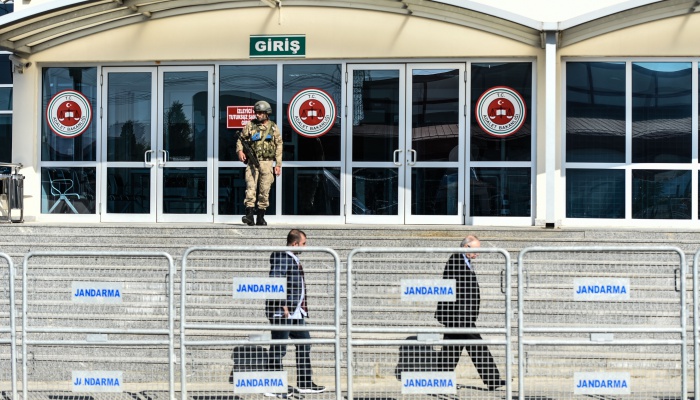As Turkish authorities confirm rapidly increasing cases of the novel coronavirus, 32 bar associations across the country released a joint statement on Wednesday calling for a number of urgent measures aimed at protecting people in the country’s overcrowded prisons and for the immediate release of high-risk inmates.
The statement pointed out that there are currently some 300,000 people in Turkey’s prisons, surpassing by far the facilities’ capacity, resulting in problems related to ventilation, hygiene and health services.
“The gravity of the risk we are confronted with can be better understood when we consider the fact that there are thousands of sick and elderly inmates as well as women and children in the prisons,” the statement read.
“While restricting prisoners’ meetings with their lawyers and relatives, which is their only contact with the outside world, can protect to some extent their physical health, it poses the risk of destroying their mental health.”
“In addition, the virus can be brought to prisons not only by relatives but also by guards and other security personnel.”
The statement pointed out that some of the high-risk prisoners include victims of politically motivated arrests and that the virus could be life-threatening for some of these people due to their age or other preexisting conditions.
It also underlined the precautionary nature of pretrial detention and said if it conflicts with the right to life, authorities should give priority to life and move towards other options such as house arrest and judicial supervision.
The bar associations also called for an expansion of telephone privileges in order to reduce the negative effects of restrictions imposed on the right to see lawyers and relatives. Currently, inmates are allowed one phone call of 10 minutes per week with family members.
The risks of the coronavirus outbreak for the country’s incarcerated population have been raised by human rights groups and most notably by deputy Ömer Faruk Gergerlioğlu, who has been particularly vocal about the overcrowding and hygiene problems in prison facilities.



